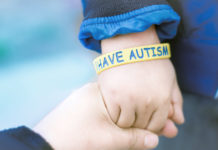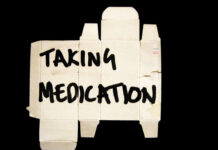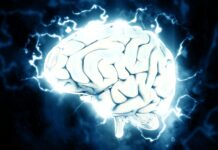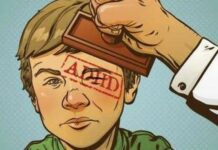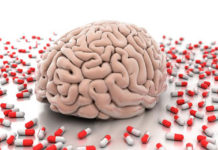Is Long-term Use of Benzodiazepines a Risk for Cancer?
A large study of the population in Taiwan reveals that long-term use of benzodiazepine drugs, commonly prescribed for anxiety, significantly increases the risk for brain, colorectal, and lung cancers. The research, published open-access in the journal Medicine, also identifies the types of benzodiazepines that carry the greatest cancer risk.
Soteria Israel: A Vision from the Past is a Blueprint for the Future
In Israel, there is a budding Soteria movement that foretells of a possible paradigm shift in care. The thought is that such care may become a first-line treatment for newly psychotic patients.
Very Slow Tapering Best For Antidepressant Withdrawal
A new article in Lancet Psychiatry finds that slower tapering of SSRIs is better for preventing antidepressant withdrawal effects.
The Real Myth of the Schizophrenogenic Mother
Acknowledging the role of trauma inflicted by a given individual’s mother is not the same as laying all blame for “mental illness” at the feet of motherhood. Meanwhile, a mountain of evidence has accumulated linking schizophrenia to sexual, physical, and emotional abuse and many other categories of adverse childhood experiences.
Not So Rare But Rarely Diagnosed: From Demonic Possession to Anti-NMDA Receptor Encephalitis
Throughout the ages, convulsions, contortions of the body and face, including the tongue, super-human strength, catatonic periods, long periods of wakefulness or sleep, insensitivity to pain, speaking in tongues, and a predilection for self-injurious behaviours have all been offered as physical evidence of possession. The modern day interpretation, however, comes with a plot twist befitting a media spectacle. There is growing consensus in the medical community that many prior accounts of “demonic possession” may have represented original accounts of what is now broadly known as autoimmune encephalitis.
No, There is no Such Thing as ADHD
Somewhere along the line we have lost the understanding that kids come in all shapes and sizes. Some kids are active, some are quiet; some kids are dreamers, others are daring; some kids are dramatic, others are observers; some impulsive, others reserved; some leaders, others followers; some athletic, others thinkers. Where did we ever get the notion that kids should all be one way?
Initial Trial of Ayahuasca for Depression Shows Promising Results
Ayahuasca found to be effective in treating moderate to severe depression in low-income population.
The Scientism of Autism
Autism is now simply assumed to represent a real, tangible, identifiable ‘thing.’ But no one is asking the obvious question: On what evidential basis can you conclude that autism represents a natural category that can be differentiated from other natural categories? According to the real science, autism should be seen as a fact of culture, not a fact of nature.
New Data Show Lack of Efficacy for Antidepressants
An article published this month in the journal BMC Psychiatry suggests that there is a lack of efficacy for SSRIs and that they significantly increase the risk of serious side effects.
The Scientism of Attention Deficit Hyperactivity Disorder (ADHD)
Calling ADHD a diagnosis, i.e., something with the capacity to explain the behaviours that it describes, is like saying the headache is causing the pain in my head or the inattention is caused by inattention. Scientism has turned ADHD from a vague, difficult to pin down concept into a fact of culture masquerading as a fact of nature.
Mental Health Professionals Critique the Biomedical Model of Psychological Problems
While a great deal of the excitement about advances in psychological treatments comes from the potential for research in neuroscience to unlock the secrets of the brain, many mental health experts would like to temper this enthusiasm. A special issue of the Behavior Therapist released this month calls into question the predominant conception of mental illnesses as brain disorders.
Part VI: How Adult Society Betrayed Michelle Carter and Conrad Roy
The story of Michelle Carter and Conrad Roy is not only a tragedy within itself and for all those involved with them, it is emblematic of the situation faced by millions of young people in the western world and increasingly around the entire planet. Final installment in the series.
Duty to Warn – 14 Lies That Our Psychiatry Professors in Medical School Taught...
Revealing the false information provided about psychiatry should cause any thinking person, patient, thought-leader or politician to wonder: “how many otherwise normal or potentially curable people over the last half century of psych drug propaganda have actually been mis-labeled as mentally ill (and then mis-treated) and sent down the convoluted path of therapeutic misadventures – heading toward oblivion?”
Danish Study Finds Better 10-year Outcomes in Patients Off Antipsychotics
Study finds that 74% of patients with a psychotic disorder off antipsychotics at end of 10 years are in remission.
Psychiatry’s 12-Step Program for Producing Heroin Addicts
I believe that today’s heroin addicts are a new breed — the seeds of their creation were sown back in 1990, when doctors’ lies about normal childhood immaturity being a genetic “brain illness” became accepted. Here are some statistics that support my argument that psychiatry is the root cause of our heroin epidemic.
New Review Highlights Dangers of Electroconvulsive Therapy
Data shows that over a third of users experience permanent memory loss and that approximately half report not receiving adequate information about the risks from their doctors.
Victim Blaming: Childhood Trauma, Mental Illness & Diagnostic Distractions?
Why, despite the fact that the vast majority of people diagnosed with a mental illness have suffered from some form of childhood trauma, is it still so difficult to talk about? Why, despite the enormous amount of research about the impact of trauma on the brain and subsequent effect on behaviour, does there seem to be such an extraordinary refusal for the implication of this research to change attitudes towards those who are mentally ill? Why, when our program and others like it have shown people can heal from the effects of trauma, are so many people left with the self-blame and the feeling they will never get better that my colleague writes about below?
The Forced Psychiatric Treatment of a Child
This is my story of forced psychiatric treatment as an eight-year-old girl, from my perspective as an adult mental health professional. Being held down kicking and screaming to be injected with a benzodiazepine is a human rights violation no child should endure for saying no to a pharmaceutical. In hindsight, when I reflect on that day, it feels like a form of child abuse.
Benzodiazepines Linked to Treatment Resistant Depression
Prior use of benzodiazepines, such as Xanax, Librium, or Ativan, may increase the risk of treatment-resistant depression (TRD), according to a new study published in The Journal of Nervous and Mental Disease.
New Data Supports Acupuncture as a Treatment for Depression
Researchers found acupuncture effective in the treatment of chronic pain and depression
The FDA Is Hiding Reports Linking Psych Drugs to Homicides
In my wildest dreams, I could never have imagined being drawn into a story of intrigue involving my own government’s efforts to hide, from the public, reports of psychiatric drugs associated with cases of murder, including homicides committed by youth on the drugs. But that is precisely the intrigue I now find myself enmeshed in.
New Study Examines User Experience of Discontinuing Psychiatric Medications
Researchers find that support and self-care were helpful for users during discontinuation, but that mental health professionals were not very helpful.
3 Facts All Parents Should Know About ADHD Stimulant Drugs
Medicating children for a host of mental disorders has become very popular in some parts of the USA. More than 8 million kids from 6 months to 17 years of age are on pharmaceutical drugs in this wonderful country. We lead the world in drugging youth for behavioral, cognitive and attention issues. We are once again #1. But I would like to share with parents as well as adults working with children a few not so readily available facts related to medicating kids for behavior issues.
Renowned Harvard Psychologist Says ADHD is Largely a Fraud
From Curious Mind Magazine: Jerome Kagan, one of the most influential psychologists of the 20th century, believes that the diagnosis of ADHD is a mere...
New Research Suggests Brain Abnormalities in ‘Schizophrenia’ May Result From Antipsychotics
Study finds that reduced cortical thickness and brain surface area associated with 'schizophrenia' may result from antipsychotic drug use.






